© 2014 The Texas Lawbook.
By Natalie Posgate – DALLAS (August 1) – It was a single act of impulse, but could cost thousands. Tension was elevated. Opposing counsel was infuriating. It was time to act, to protect the client.
Removed from a formal legal setting, the movement was simple. Firm. Stinging, but not belligerent. Some might even discipline their child with it.
But this wasn’t an everyday scenario.
For about seven hours over two days this week, lawyers argued in front of a state judge whether Lubbock personal injury attorney Sam Fadduol’s hand slap of opposing counsel was a breach of professionalism to the legal profession or whether it was justified because he was antagonized into doing it.

Photo courtesy of dallasnews.com
State District Judge Carlos Cortez, who presided over the hearing, agreed with the former.
“I think this is an embarrassment to our profession,” Judge Cortez said Thursday afternoon in a hearing, minutes before upholding sanctions on Fadduol for striking an opposing counsel’s hand in the middle of a November 2013 video deposition.
“Sanctions are appropriate for a number of reasons,” he said.
Experts not involved in the case point to an earlier time where this behavior would not be looked over twice.
“It used to be where if Joe Jamail didn’t come after you, then you didn’t do a good job with his witness,” said Randy Johnston, a prominent legal malpractice expert based in Dallas. “In the 80s and 90s, you had judges who wouldn’t do anything. They’d just say you’re a crybaby [if you filed a sanction].”
But today, after various rules came into effect that mandated lawyers to “grow up” and “treat each other with respect,” a conduct slip-up “absolutely could have an effect on the rest of the trial,” Johnston said.
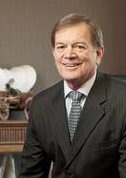
Photo courtesy of dallasnews.com
“It is not uncommon to have one sanction order upheld be like blood on the water,” Johnston added. “It encourages the sharks to come in and try to do it again.”
Dallas attorney Lewis Sifford, a longtime diplomate and previous president of the American Board of Trial Advocates, said uncivil language exchanged between lawyers at depositions is probably less common than the past, but during his 42 years in the profession, he said he has never attended a deposition where a lawyer struck another lawyer.
“This is an isolated occurrence, it doesn’t happen very often,” Sifford said Saturday morning on a phone call from Scotland, where he is teaching a summer course at the University of St Andrews on ethics, stability and professionalism in the legal industry.
“It diminishes people’s respect of the law, and I think it’s one of the reasons why [judges] would be very strict and harsh in their sanctions,” he added. “It does not reflect very well on our profession and it shouldn’t be tolerated.”
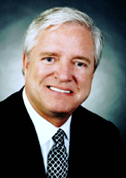
In a nearly full-day hearing that resembled a mini-trial, Cortez heard from attorneys on both ends about the video deposition episode, which was part of a catastrophic injury case that is set for trial this November.
In addition to Fadduol, the hand-slapper, the plaintiffs’ legal team includes colleagues Matthew Heape and Richard Hardy of Fadduol, Cluff & Hardy, as well as Dallas attorney George (Tex) Quesada of Sommerman & Quesada. They represent Limbano Vasquez and his family. Vasquez became a quadriplegic after an accident with an 18-wheeler in the panhandle town, Muleshoe, Texas.
The defense team, which represents a trucking company and the driver, includes Dallas Greenberg Traurig shareholder Victor Vital and Jeff Ray, Jeffrey Lucky, William Powers and Robert Edwards of the regional civil litigation firm, Ray, McChristian & Jeans.
Fadduol originally received sanctions from State Civil District Court Associate Judge Monica McCoy Purdy, who made a ruling on March 31 that Fadduol had to reimburse opposing counsel for costs associated with a Special Master, Judge Joe Cox, who the court assigned to oversee future depositions after the hand-slapping episode.
The plaintiffs’ lawyers appealed the decision and requested for a de novo hearing, bringing in appellate counsel Kirk Pittard of Kelly, Durham & Pittard to lead yesterday’s arguments in Cortez’s court.
After opening comments, Vital, who argued for the defense, played the video of the deposition in which the infamous hand slap occurred.
In the video, Jeffrey Lucky was questioning Estela Vasquez, the wife of the victim. She was in the passenger seat of her husband’s Ford at the time of the accident. Because she does not know English, a translator was present. The key issue Lucky was trying to pin down was which lane the accident occurred in – a detail Fadduol pointed out was crucial for proving negligence.
Because of language barriers (and a “Tex-Mex” interpreter that Judge Cortez and Fadduol agreed to be inadequate in the formal Spanish language), Lucky and Vasquez had different definitions of what to call the lanes (right and left versus velocity and passing).
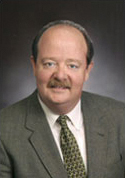
Lucky was using an exhibit with a drawing of a three-lane road to aid in the examination. The situation started to escalate when Lucky and Fadduol went back and forth, with Lucky flipping the exhibit over facedown and Fadduol flipping the picture right side up so Vasquez could see it.
“Excuse me, I prefer to have the witness focus on the question rather than by exhibition,” Lucky said.
“I’m going to put it all on the record so you can’t defraud this jury any more than you already have,” Fadduol shot back.
The two agreed that Vasquez would hold up the deposition to the camera while Lucky questioned her.
At one point Lucky objects to Vasquez being nonresponsive, and reaches his hand out to touch the paper she is holding.
Fadduol then slapped Lucky’s hand and attempted to grab it, and Lucky pulled his hand away.
“Do not strike me,” Lucky said.
Vital argued that if Fadduol did not agree with the way Lucky conducted his testimony, he had the opportunity to set it right during his own examination of the witness.
But on the witness stand, Fadduol argued that he had no choice. When Lucky moved his hand toward the document his client was holding, Fadduol said he initially reached his hand and put it under Lucky’s hand, “with no intent to hit.” But when Lucky started “aggressively” reaching for the document, Fadduol said his first instinct was to protect her in case Lucky used aggression on her like he did to Fadduol earlier that day.
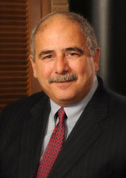
“My intent is not to get in a fight; my intent is to let her keep the document,” Fadduol said. “Here in the room was her husband, a quadriplegic in a wheelchair… there was no one else to defend her but me.”
The initial aggression, Fadduol claimed, occurred earlier in the day when counsel agreed to briefly go off the record. There had been a dispute about marking up documents, so the attorneys needed to give the judge a call. Fadduol said he was holding some documents, and when he turned his head toward a colleague, he felt “a ripping sensation” of Lucky aggressively snatching the papers out of his hand.
Pittard displayed video footage of this, but the actual image of the alleged document snatching was not captured since it was not in the frame of the camera.
“There were two assaults that happened in the deposition, Pittard argued in front of Cortez. “The hand slap incident did not occur in a vacuum.”
Vital argued that Lucky never snatched the papers from Fadduol’s hands, but rather, from the table. He said despite the frustration Fadduol had been feeling, acting with aggression like he did was no excuse.
At one point, Vital mentioned the various types of courts he has appeared in throughout his career – civil, criminal, family – and he had never seen this kind of behavior until now.
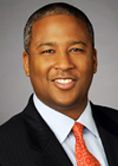
“In close to two decades, never have I seen a lawyer strike another lawyer on official proceedings,” Vital said. “You cannot strike people because you’re frustrated. It goes back to what they teach you in law school – you can only use as much force as necessary.”
Before Cortez told counsel his decision, he brought attention to the several young legal interns and law students who were present to observe. He said at the beginning of cases he tells jurors that the law is a noble profession, in line with teaching, the military and others.
“I will confess with these young eyes and ears present that [want to enter our profession], I’ve been embarrassed with what’s going on,” he said. “Not only in the deposition, but with the manner in which what took place today.”
Cortez did not rule on the reimbursement of attorney’s fees that will be associated with the sanctions, but said he would take up the matter at a later date.
“We are disappointed in the court’s decision but intend to comply with the court’s admonitions,” Pittard said of Thursday’s outcome. “We are reserving further comment due to the fact that the underlying case is of utmost importance and is still pending.”
© 2014 The Texas Lawbook. Content of The Texas Lawbook is controlled and protected by specific licensing agreements with our subscribers and under federal copyright laws. Any distribution of this content without the consent of The Texas Lawbook is prohibited.
If you see any inaccuracy in any article in The Texas Lawbook, please contact us. Our goal is content that is 100% true and accurate. Thank you.
